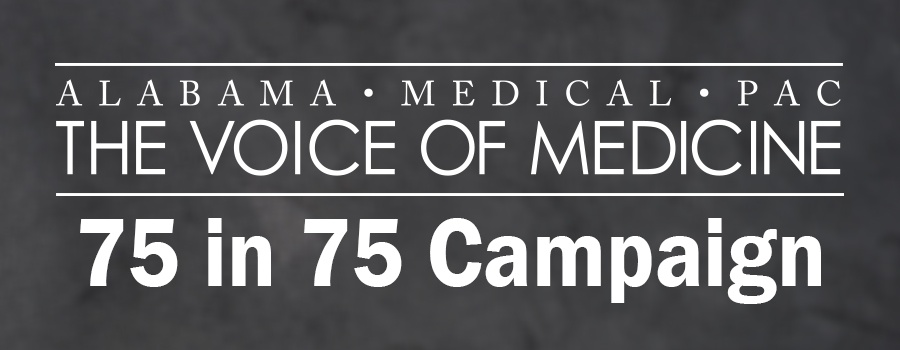Tag: alapac
-

Why I Give: Dr. John Meigs
As president of the Medical Association, I want to thank you for your membership in our organization. While membership is essential to our success, so too is advocacy. Past President Dr. Underwood recently said, “It’s amazing how politics can determine the direction of medicine.” He’s exactly right. Yet, instead of waiting until politicians are about…
-

ALAPAC Launches $75K in 75 Days Campaign
Earlier this month, ALAPAC kicked off its year-end fundraising campaign and is seeking to raise $75,000 in 75 days. As the official political action committee of Alabama physicians, ALAPAC provides financial and technical support to candidates medicine can work with on the myriad of health care issues affecting our state. It may not be a…
-

Nearly All ALAPAC-Supported Candidates Won Their Elections
Tuesday’s election nationally saw the U.S. House flip from Republican to Democrat-controlled, but U.S. Senate Republicans actually increased their majority. In Alabama, Republicans remain in control of both house of the legislature and all statewide elected offices. From an election results standpoint within Alabama, the Alabama Medical PAC (ALAPAC) participated in 111 out of 140…